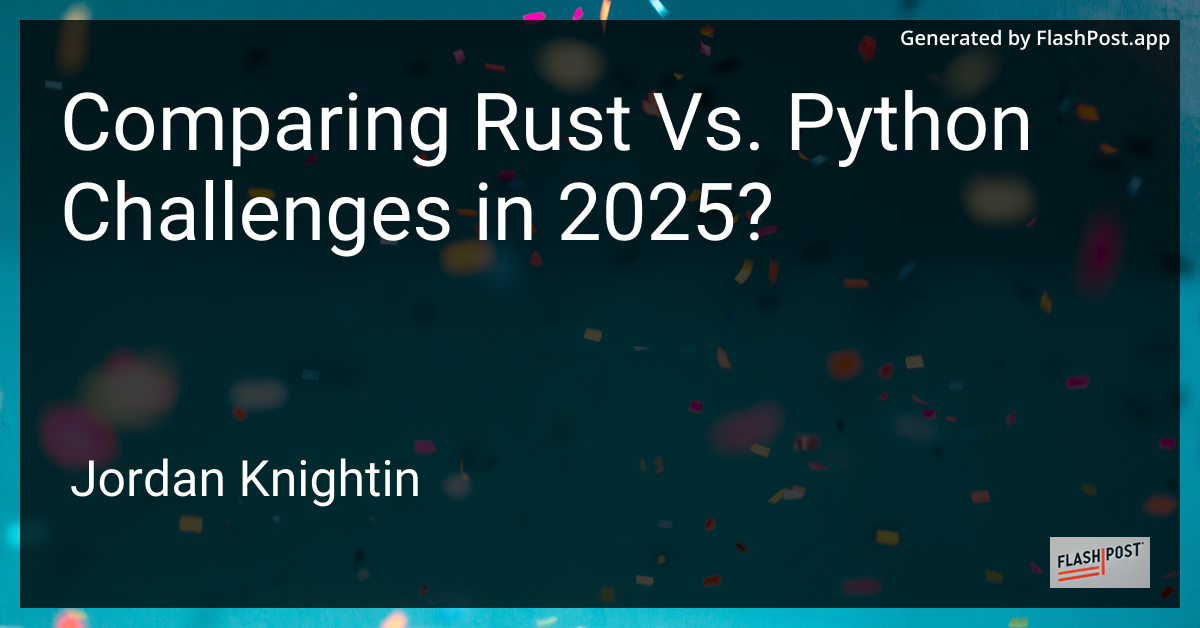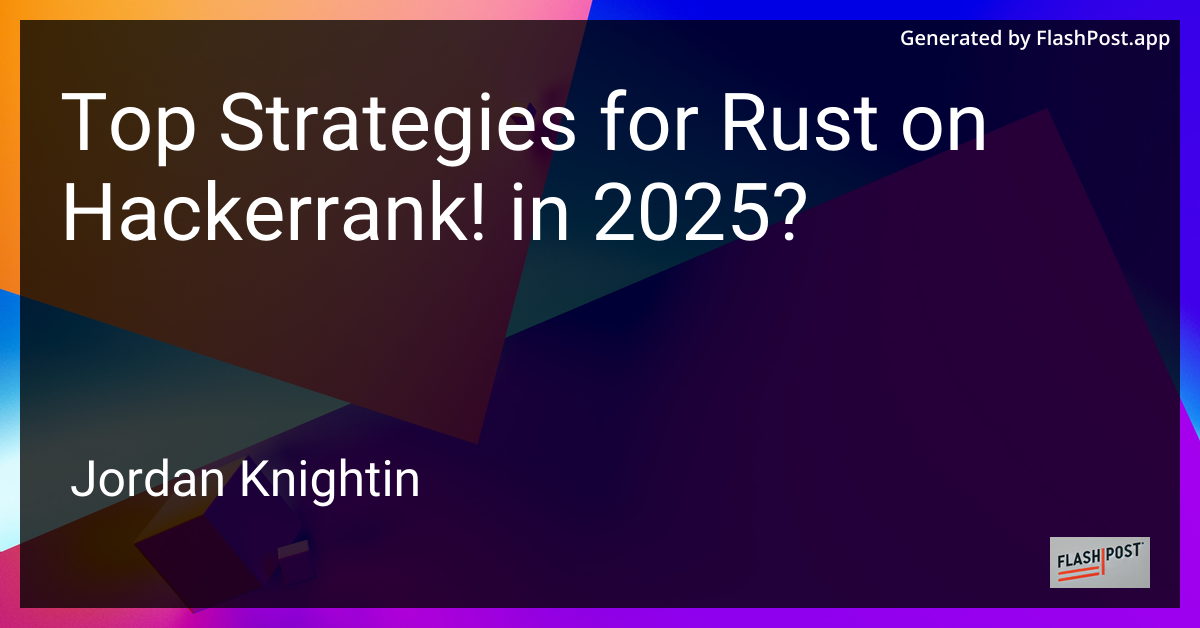

Comparing Rust Vs. Python Challenges in 2025?
As we stride further into the future, the challenges developers face when choosing between programming languages evolve. Rust and Python, both popular in different domains, continue to serve critical roles in software development. By 2025, the comparison between these two languages involves evaluating their unique challenges. This article delves into those challenges and what they mean for developers in 2025.
Best Rust Programming Books to Buy in 2025
| Product | Features | Price |
|---|---|---|
 The Rust Programming Language, 2nd Edition | Grab This Deal  | |
 Programming Rust: Fast, Safe Systems Development | Grab This Deal  | |
 Rust for Rustaceans: Idiomatic Programming for Experienced Developers | Grab This Deal  | |
 Rust in Action | Grab This Deal  | |
 Rust Programming: A Practical Guide to Fast, Efficient, and Safe Code with Ownership, Concurrency, and Web Programming (Rheinwerk Computing) | Grab This Deal  |
Rust: The Challenges Ahead
1. Complexity and Learning Curve
Rust is renowned for its performance and safety. However, its complexity remains a challenge. The language’s steep learning curve can be daunting for new programmers, especially those coming from higher-level languages such as Python. Concepts like borrowing, lifetimes, and ownership model can take time to master.
2. Interoperability with C++
Rust offers robust safety and performance but integrating it with existing C++ systems can be challenging. As many legacy systems are written in C++, achieving seamless interoperability involves overcoming differences in memory management and object representation.
- Resource: Explore the challenges of Rust C++ interoperability.
3. Limited Libraries and Ecosystem
While Rust’s ecosystem is growing, it still lacks the extensive standard libraries and third-party modules found in Python. This limitation can slow development speed, particularly for domains where rapid prototyping is necessary.
- Resource: Learn more about the growing ecosystem, including Rust’s skip functionality.
Best Rust Programming Books to Buy in 2025
| Product | Features | Price |
|---|---|---|
 The Rust Programming Language, 2nd Edition | Grab This Deal  | |
 Programming Rust: Fast, Safe Systems Development | Grab This Deal  | |
 Rust for Rustaceans: Idiomatic Programming for Experienced Developers | Grab This Deal  | |
 Rust in Action | Grab This Deal  | |
 Rust Programming: A Practical Guide to Fast, Efficient, and Safe Code with Ownership, Concurrency, and Web Programming (Rheinwerk Computing) | Grab This Deal  |
Python: Challenges in Staying Relevant
1. Performance Bottlenecks
Python is beloved for its simplicity and versatility. However, its performance bottlenecks, primarily due to its interpreted nature, continue to challenge developers seeking high-speed computation. This limitation necessitates the use of just-in-time compilers or extensions like Cython for optimization.
2. Concurrency and Multithreading
Python’s Global Interpreter Lock (GIL) can be a significant hurdle for multithreading. In applications where parallel processing is crucial, Python requires workarounds such as multiprocessing, which can complicate development.
3. Scalability in Large Codebases
As Python applications grow, maintaining code quality can become difficult. Dynamic typing, while making the language flexible, might lead to runtime errors in large, complex applications without diligent testing and code management practices.
Best Rust Programming Books to Buy in 2025
| Product | Features | Price |
|---|---|---|
 The Rust Programming Language, 2nd Edition | Grab This Deal  | |
 Programming Rust: Fast, Safe Systems Development | Grab This Deal  | |
 Rust for Rustaceans: Idiomatic Programming for Experienced Developers | Grab This Deal  | |
 Rust in Action | Grab This Deal  | |
 Rust Programming: A Practical Guide to Fast, Efficient, and Safe Code with Ownership, Concurrency, and Web Programming (Rheinwerk Computing) | Grab This Deal  |
Conclusion
By 2025, both Rust and Python continue to present unique challenges that developers must consider in their projects. Rust offers unmatched performance and safety but with a steeper learning curve and integration barriers. Python’s simplicity and broad libraries cater to fast development but with trade-offs in performance and concurrency.
Making an informed choice between Rust and Python involves weighing these challenges against the specific needs of your project and development team capabilities. As we forge ahead into the future, the balance between ease of use and performance remains at the forefront of choosing the right tool for the right job.
As languages adapt to new demands and technology trends, developers must stay updated on best practices and emerging solutions to leverage Rust and Python effectively. Each language’s evolving documentation and community support continue to play pivotal roles in addressing these ever-evolving challenges.
